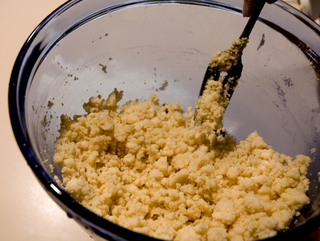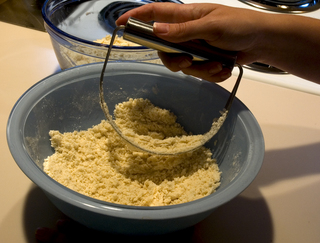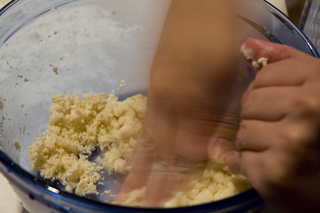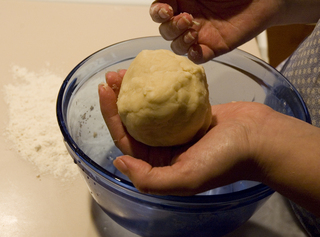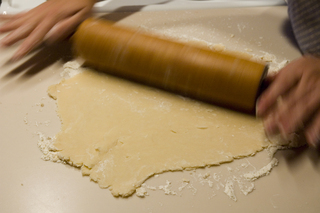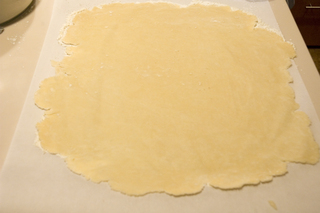Perfect Pie Crust Made Easy
By Acacia Jackson
July 01, 2008
The crust of the pie is really the most important part. Whether you fill the crust with strawberries and rhubarb, cherry, or apple doesn't much matter if you've made a terrible crust.
I grew up in New England with a large family, filled with great cooks. Before leaving for college, my mother insisted on teaching me to make a real crust the same way my grandmother taught her, and so on. The recipe is simple and the key to success is thin and flaky.
2 c flour
2/3 c crisco
1 tsp salt
ice water
This is enough to make a pie calling for a top and bottom crust. I usually split it into two bowls to prepare the crusts separately.
In a medium bowl, mix the flour, crisco, and salt with a pastry cutter until it is completely worked together into a fine crumb.
Run a thin stream of the coldest tap water from the faucet. (Any less water and it would be just drips.)
The reason there is no amount for the ice water is that you are to use just enough to form the dough into a ball. Too little and the dough won't form or roll out. Too much water and you get a gummy mess that sticks to your fingers when you try to knead it. This is where the craft is honed. Take care not to over-handle the dough. The less you handle the dough, the more tender it will be.
Pass the bowl under the stream of water for a quick moment and quickly stir with a fork. Keep doing this until it starts to form a dough. When in doubt, stop and test the consistency with your fingers. You can always add more water. If you can press the dough into a ball and pick it up without much falling, then you are ready to roll it out.
You can roll the dough out on the counter top with flour, between parchment paper , or on an oiled pastry cloth. Roll it thin, thinner than you may think is right. If you get a break in the crust or it isn't keeping a round shape, you can always tear off a piece from somewhere else for a patch. After it is rolled, fold it in half and slide it onto a pie plate, then unfold it. It is easier to move that way.
Trim the crust about an inch over the edge of the plate. If you are making a top crust, trim it a little longer than the bottom. Fold the overhang under itself and crimp all the way around. Depending on your oven, you may want to put a little foil around the very edge so it doesn't brown faster than the pie cooks.
I hope you enjoy this recipe as much as I have.
Fill your crusts with many delights!
Acacia
To see this recipe in action, check my Strawberry Rhubarb Pie Recipe.
